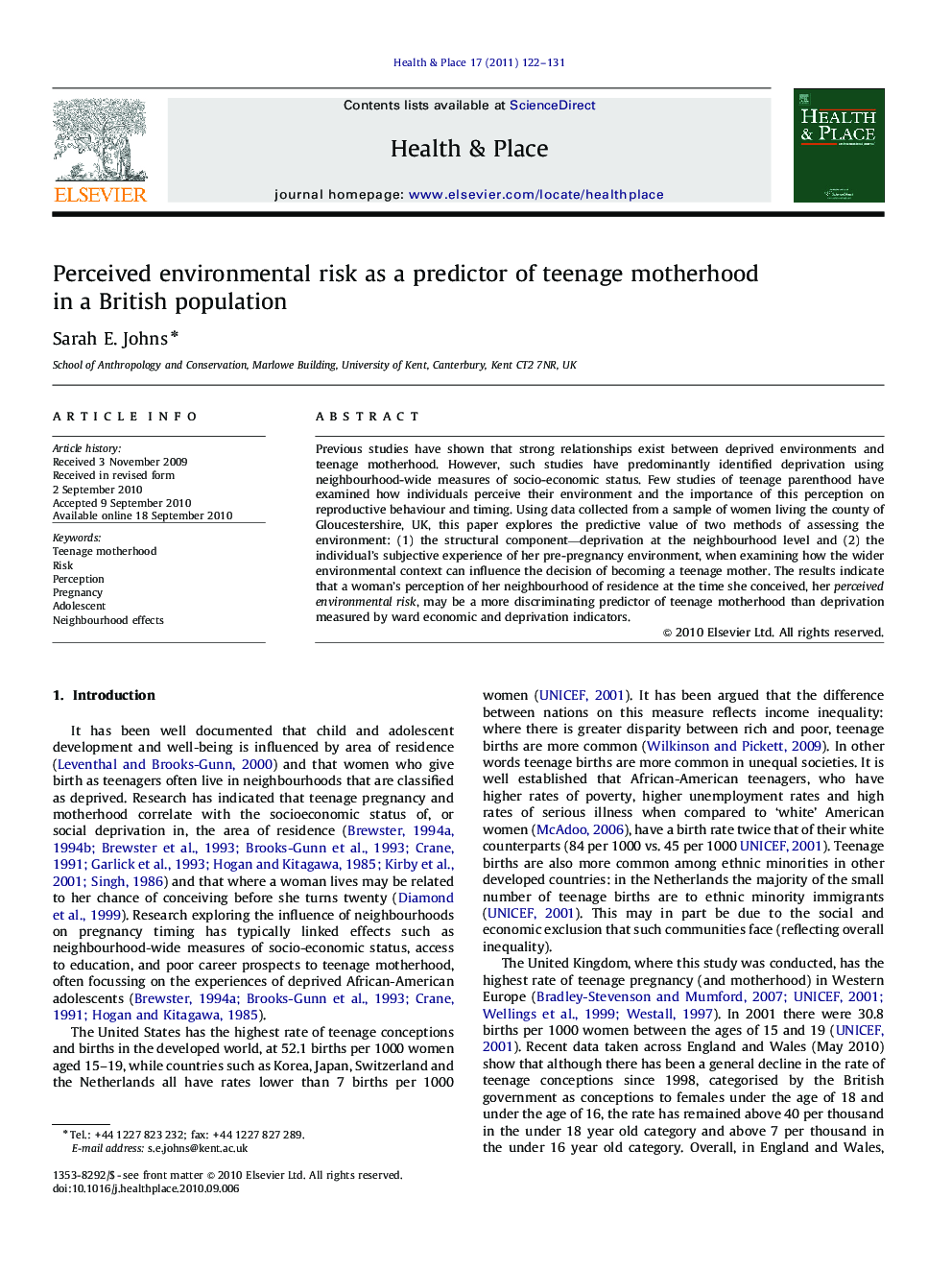| Article ID | Journal | Published Year | Pages | File Type |
|---|---|---|---|---|
| 10502836 | Health & Place | 2011 | 10 Pages |
Abstract
Previous studies have shown that strong relationships exist between deprived environments and teenage motherhood. However, such studies have predominantly identified deprivation using neighbourhood-wide measures of socio-economic status. Few studies of teenage parenthood have examined how individuals perceive their environment and the importance of this perception on reproductive behaviour and timing. Using data collected from a sample of women living the county of Gloucestershire, UK, this paper explores the predictive value of two methods of assessing the environment: (1) the structural component-deprivation at the neighbourhood level and (2) the individual's subjective experience of her pre-pregnancy environment, when examining how the wider environmental context can influence the decision of becoming a teenage mother. The results indicate that a woman's perception of her neighbourhood of residence at the time she conceived, her perceived environmental risk, may be a more discriminating predictor of teenage motherhood than deprivation measured by ward economic and deprivation indicators.
Related Topics
Health Sciences
Medicine and Dentistry
Public Health and Health Policy
Authors
Sarah E. Johns,
